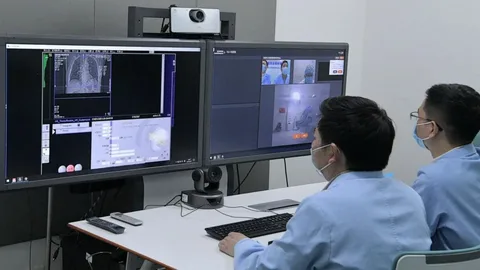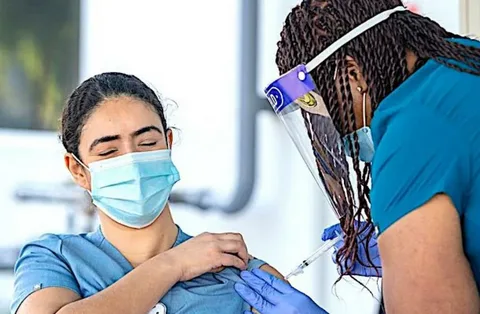Who employs perioperative educators for 188,000?
Outline
- Introduction
- Who are the perioperative educators?
- The reason why the figure of PS188,000 is important.
- Common questions regarding high-paying jobs for teachers in perioperative education.
- What do perioperative educators do?
- The roles and responsibilities.
- Their importance in the field of healthcare.
- The most important abilities necessary to be successful.
- Who Pays PS188,000 for Perioperative Educators?
- Employers that offer such salaries.
- Where such jobs are in demand.
- The reasons for the high pay.
- How to Become a Perioperative Educator
- Education and job track.
- Certifications are required.
- Tips for standing out in a crowd.
- FAQs About Perioperative Educators
- Questions and answers to common questions.
- Conclusion
- Final thoughts regarding the role and the potential for it.
Introduction
Did you know about perioperative educators earning as much as PS188,000 annually and have wondered who is employing the perioperative educators at that level? This may sound like an unimaginably high amount in the field of education, but this is actually, and there’s a good reason for it.
If you’re looking for healthcare jobs that don’t require the profession of a physician or surgeon, this might be a good fit for you. Let’s take a look at the different types of perioperative teachers and what they do, and the reasons why a few have such a lucrative salary.
Who are perioperative educators?

Perioperative educators are specialists in healthcare and well-qualified. They concentrate on training and teaching operating room personnel, such as surgeons and nurses, on perfect techniques and the latest techniques. They ensure that they have a surgical staff that is fully prepared and experienced sufficient to manage any scenario during the procedure.
They are the key to making sure that surgeries are secure and efficient. Their work has a direct impact on the surgical team as well as the patients who rely on them.
What do perioperative educators do?
Role and Responsibilities
Perioperative educators are employed within operating theatres (the UK term for operating rooms). They are responsible for a variety of things that include:
- Teaching the Surgical Staff They train surgical assistants and nurses, as well as other healthcare professionals, about the latest surgical techniques, protocols, and security measures.
- Instructions on equipment They instruct staff on the perfect way to utilize new tools for surgery or technology which are being developed.
- Designing Training Programs Learners create training modules, hands-on workshops, as well as other training programs to warrant that the surgical team is prepared to perform any surgery.
- Securing safety Safety is the most important factor during any procedure. An educator for perioperative procedures ensures that all patients follow the correct security measures to lower the risk on the part of patients.
Why Their Role Matters
- Security of the Patient Surgery is a complex procedure and any error could be fatal. Perioperative instructors assure everyone on staff know what they have to do to warrant that the patient is secure.
- Skills Development The HTML0 Skill Development team keeps their surgical staff’s abilities current and up-to-date, particularly when new procedures or techniques are developed.
- Efficiency The operating theater must be a productive space, as time is a factor when you are operating. Perioperative instructors help teams work seamlessly.
Key Skills Needed
- Deep Knowledge of Surgery The surgeons must be aware of different techniques and procedures in depth.
- Communications Skills Ability to explain complex processes in an easy and clear manner is essential.
- Leadership The majority of them conduct training sessions and must gain respect and trust from their team.
- Careful intricacies In a surgical environment, you must pay attention to the details. are about the details. Missing something could result in danger.
Who Pays £188,000 for Perioperative Educators?

It’s not every company that is willing to pay this high wage, but some do. Let’s look at where these lucrative jobs come from and the reasons.
Types of Employers
- Private hospitals Private hospitals typically have higher budgets and are more likely to offer higher wages to attract the best talent. These hospitals are looking to give the best possible care for their clients and are prepared to invest in staff training to attain this.
- Specialized Surgical Centers They are able to perform complex procedures, like heart surgeries, organ transplants or trauma surgery. For these types of high-risk situations, having a skilled Perioperative educator is crucial.
- Worldwide Employers Some of the most lucrative jobs are available in the world. In countries such as those in the United States, Middle East (e.g., UAE, Saudi Arabia), or even areas of Europe, healthcare facilities pay premiums for skilled perioperative teachers.
Why Such High Pay?
- Specialized Know-how The job of a perioperative instructor requires many specialized surgical skills, knowledge of teaching and leadership. Few people possess all three.
- Very High Hopes Employers who pay this amount are expecting a lot back in return. They are looking for an individual who can oversee an entire surgical staff, stay up to date with technological advancements, and deal with stress-inducing situations effortlessly.
- Reduced-risk surgical errors are costly, not just economically but in terms of reputation and safety for the patient. A highly experienced perioperative educator decreases the chance of making mistakes, which is a choice that employers are willing to spend money on.
Locations Where These Jobs Are Available
- United Kingdom: There are numerous opportunities in the major cities, such as London and Manchester, as well as Birmingham in particular, in private healthcare.
- United States: Hospitals in the US, especially those in major cities, are renowned as having higher salaries for healthcare professionals with specialization.
- Middle East: Hospitals in cities such as Dubai or Abu Dhabi often provide attractive pay packages for healthcare professionals with a high level of expertise.
How to Become a Perioperative Educator

If this job seems appealing, read on to learn how to become a perioperative teacher. It requires a combination of knowledge, experience, and the appropriate knowledge.
1. Start With Healthcare Experience
- The majority of perioperative educators begin their careers in the field of nurses, operating department practitioners (ODPs), or surgical technologists.
- It’s crucial to gain practical experience in the operating theater so you know the fundamentals of surgery and how you can relate to the difficulties that surgeons face.
2. Earn a Relevant Degree
- A nurse’s diploma or a master’s degree in healthcare is typically required.
- A lot of perioperative educators hold master’s degrees or advanced studies in the fields of nursing, healthcare management, and education. The master’s degree may distinguish you against other participants.
3. Get Certified
- In the UK, you can get certificates through organizations such as the Association for Perioperative Practice (AfPP).
- The certifications you earn that cover perioperative nursing, clinical education, or health leadership could increase the chances you have of landing a lucrative position.
4. Develop Strong Leadership Skills
- A large portion of the job is leading teams and instructing employees. You’ll have to be able to inspire, guide, and effectively communicate energetically.
- Consider leadership roles in your current position even if they’re just a little. This will help you gain confidence and build experience.
5. Network With Healthcare Professionals
- Participate in conferences and seminars as well as workshops that deal with perioperative care.
- Participate in a competent network and join an online community specifically for perioperative specialists. Networking can help you discover opportunities that aren’t widely advertised.
6. Apply for the Right Jobs
- Find job openings for positions in the private sector, such as healthcare facilities, specialized surgical centers, or international healthcare facilities.
- Customize your CV to emphasize both your experience in surgery and your ability to teach and guide. Include any particular achievements you have made in education or training.
FAQs About Perioperative Educators
1. What exactly is a perioperative educator?
Perioperative educators are healthcare-skilled professionals who instruct and train surgical personnel on procedures, safety protocols, procedures, and equipment used for operating rooms. Their aim is to warrant the safety and effectiveness of surgeries.
2. What is the average amount that perioperative educators usually earn?
In the UK Perioperative educators in the UK are paid an average of PS50,000 to PS80,000 annually. However, certain specialized jobs can pay up to PS188,000, specifically in hospitals that are private or international posts.
3. What do I need to be able to prove to qualify as a perioperative teacher?
It is common to require a degree or a diploma in the field of nursing or in a related healthcare field, as well as certificates in perioperative and clinical training. The experience in operating theater is also important.
4. How can I locate lucrative positions for educators who teach perioperatively?
Find jobs that are available in private healthcare facilities, specialized surgical centers, and internationally-based healthcare facilities. Jobs with high salaries are typically located in large cities or in countries that provide top-quality healthcare services.
5. Why do perioperative instructors get paid high salaries?
Their salaries reflect their specialist abilities in surgical, teaching, as well as management. They play an essential function in maintaining the safety of patients and enhancing surgical outcomes, which is extremely valuable for employers.
6. Do I require experience in surgery to be an educator in perioperative care?
You will need some prior experience within or in the operating theatre. A lot of perioperative educators begin with nurses as well as surgeon technologists before advancing into the role of an educator.
7. Are these positions accessible outside of the UK?
Yes, perioperative teachers are needed all over the world. Countries such as those of the United States, the United Arab Emirates, and various other regions of Europe typically pay higher wages for these jobs.
8. Are you stressed by this job?
It could be, since it requires working in extreme environments such as operating theatres. If you love instructing and helping others, as well as working in the field of healthcare, this could be an extremely satisfying job.
Conclusion
Perioperative educators play a crucial part in the field of surgery. They warrant that surgical teams are properly trained to be prepared, well-prepared, and ready to carry out procedures in a safe and efficient manner. The work is tough; however, it’s also extremely satisfying, both personally and financially.
The possibility of earning as much as PS188,000 is a testament to the importance of the job. Hospitals will offer top-quality compensation to assure their staff is the most desirable they could be. If you have an enthusiasm for healthcare, leadership, or teaching, then this could be a fantastic job that is right for you.
Begin to procure experience in the operating room as well as enhance your skills and pursue the required certifications. If you work hard and with dedication, you can be among the highly regarded perioperative educators that hospitals depend on to ensure that their patients are protected.
Are you ready to begin this journey? The route to becoming a perioperative educator may be difficult; however, it is rewarding for people who are dedicated to improving the quality of healthcare.




